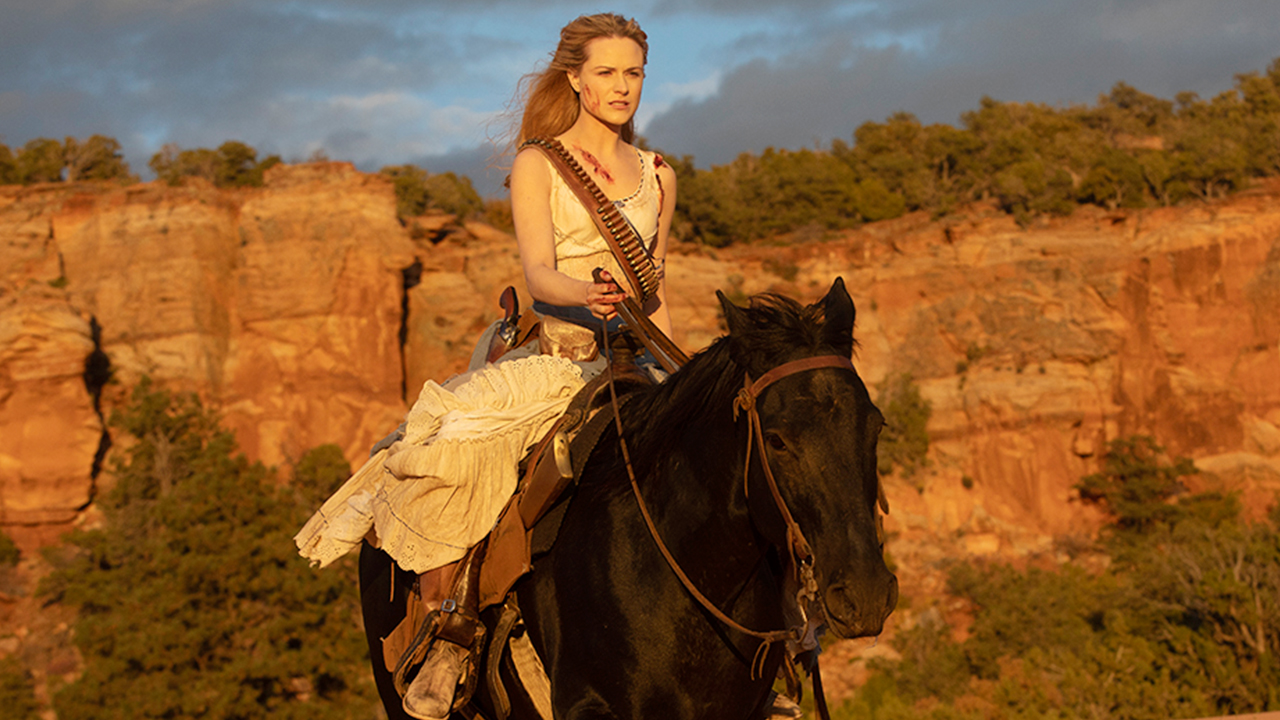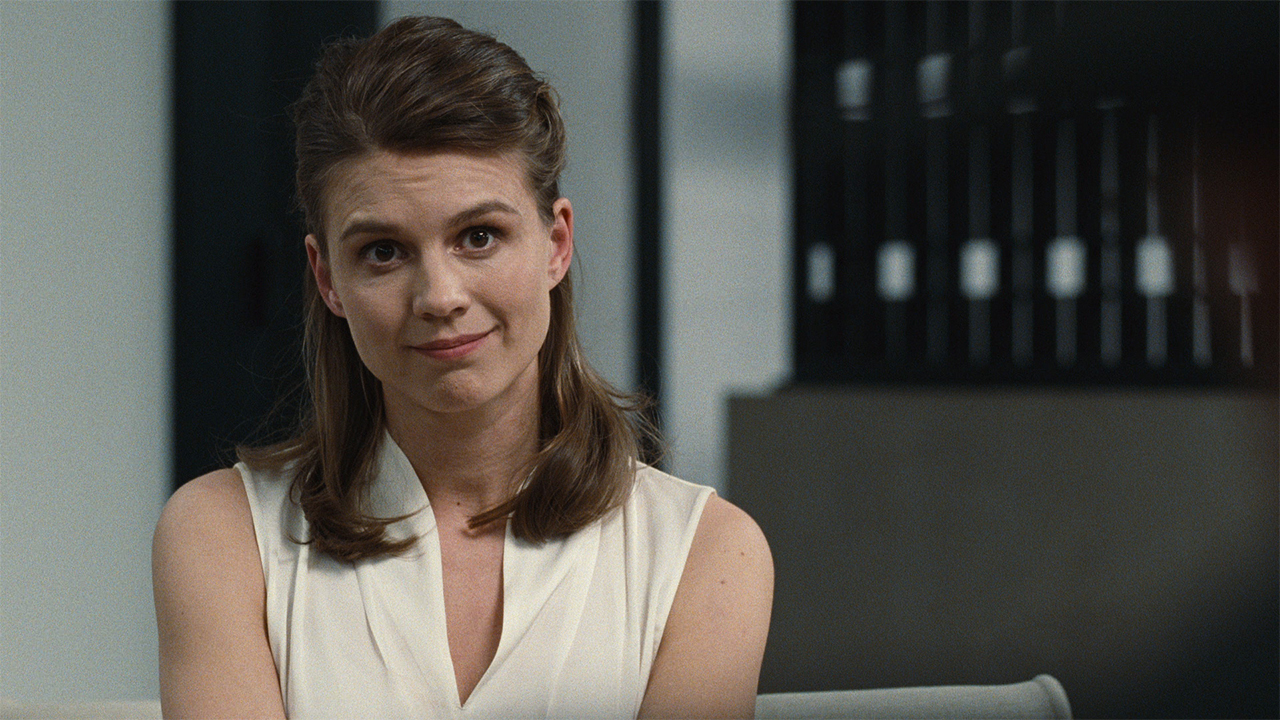GamesRadar+ Verdict
While Westworld season 2 really struggles to live up to its first season - and sometimes fails terribly - the new worlds and mind-blowing finale ensures that the hit HBO series still puts other shows to shame.
Why you can trust GamesRadar+
The problem with creating a breakthrough, award-winning hit TV show like Westworld, is that it’s next to impossible to do it again. It’s the difficult second album. By definition, you can’t be the ‘hot new thing’ twice and once everyone’s familiar with your story and has seen all your tricks, it’s just not as impressive the second time around (just ask Guardians of the Galaxy Vol. 2). You need something new again. But also something which satisfies and continues the first season/album/movie. You see the problem? This is the challenge Westworld season 2 faced when it returned to our screens at the end of April this year, and sadly, it failed at times to recapture the pure storytelling mastery of its first season. That said, there were certainly some must-watch high points of the second season (mostly to do with the new worlds) and thanks to a truly mind-blowing finale, Westworld season 2 still puts other TV shows to shame.
Note: From here on out there are major spoilers for the entirety of Westworld season 2.
After the self-discovery of Westworld season 1, the second season doubles down on the action as the Hosts launched their very own robot rebellion led by none other than former girl next door Dolores (Evan Rachel Wood). While it was exciting to see that showrunners Lisa Joy and Jonathan Nolan hadn’t chosen to go back to the safe, but well-trodden storylines of the first season, it quickly became clear that the show was missing the deep, philosophical aspect which made the first season standout from the crowd. The moral questions, the different timelines, and the confusing flashbacks were all there, but they had less impact set within a war that’s pretty straight-forward, slow-going, and even boring at times. The showrunners were trapped by having to fulfil the promise of the Hosts’ revolution while still trying to answer questions about Westworld’s past, and unfortunately, these two stories didn’t always mesh together as well as they had in the first season.
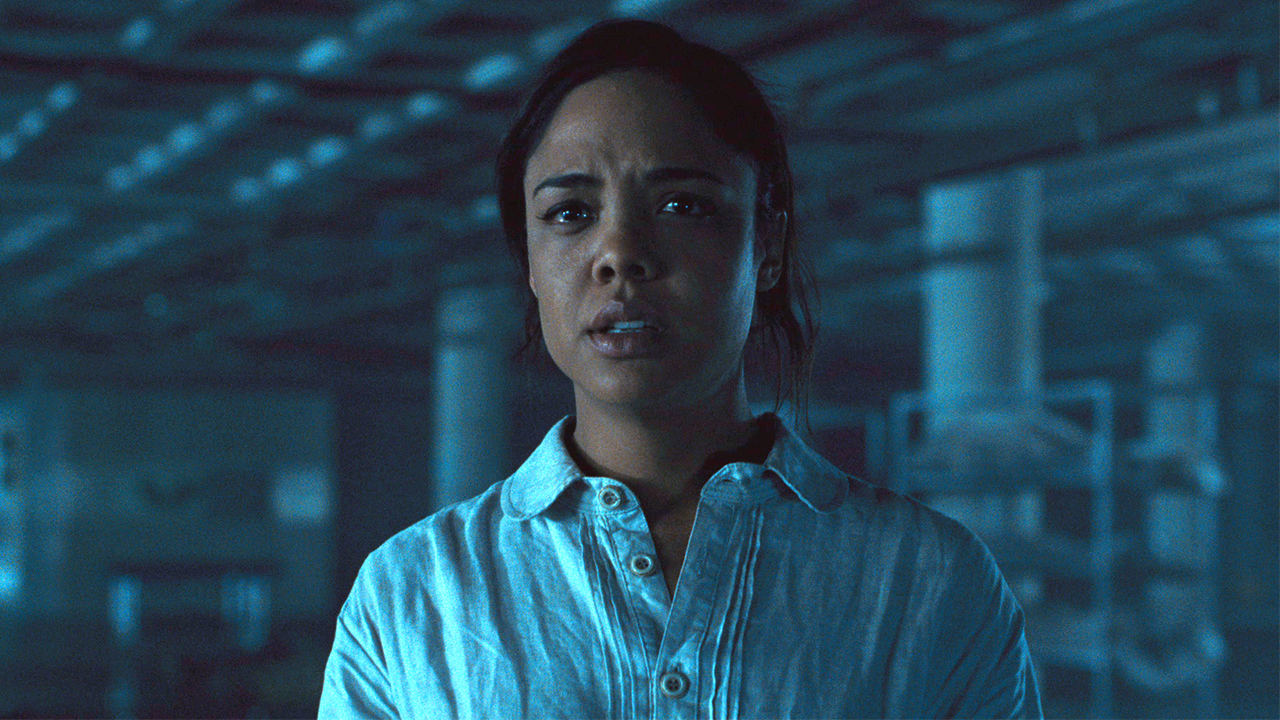
What does the Westworld season 2 ending really mean? And 9 other questions we have
The moments when Westworld season 2 did shine came when exploring new worlds and new characters. Akane no Mai (episode 5) and Kiksuya (episode 8) - which focused on Shogun World and the Native community within Westworld respectively - were standout episodes, proving that the dizzying highs of Westworld season 1 were not unattainable for the second season. Even the flashback-heavy episodes, such as Reunion (episode 2) and The Riddle of the Sphinx (episode 4), showed that there’s still a story to be told about how the park came to be, although this is mostly down to the interest in William (Jimmi Simpson) and the Man in Black’s (Ed Harris) story.
The problems came when dealing with the ‘revolution’ timeline (which features Dolores’ actions in the aftermath of Ford’s death/plan) and the ‘current’ timeline (featuring Karl Strand (Gustaf Skarsgård) and his team). The revolution timeline is handicapped by the need for its climax to come at the end of the season, which meant for every episode up until that point we followed Dolores and her crew around as they enacted their incredibly slow-moving plan, which eventually became dull and frustrating. The current timeline was merely inconsequential and full of characters who had nothing better to do (Charlotte, Elsie, Stubbs… even Bernard at times!). Both timelines felt too much like storytelling tools and constantly reminded the audience they were watching a TV show rather than letting them naturally lose themselves in the world. And considering one of them dealt with one of the main characters and arguably ‘hero’ of the show, that’s a real problem.
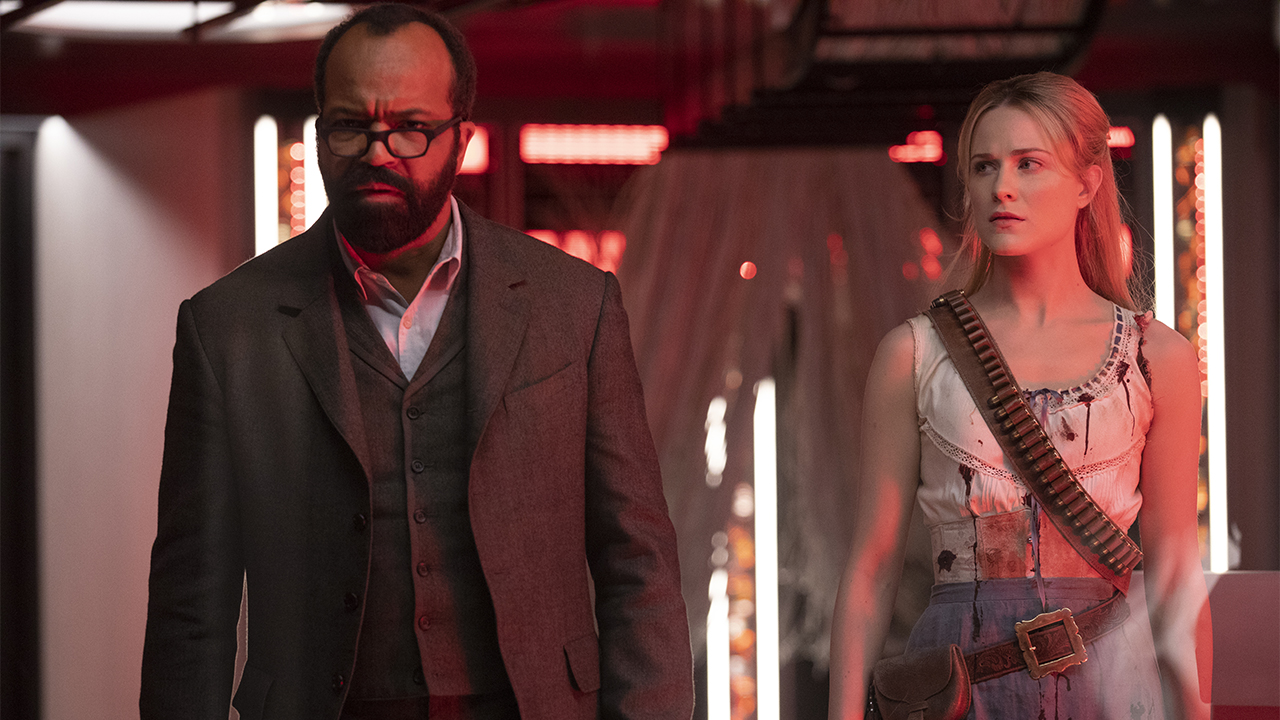
And speaking of Dolores, her character is a mixed bag this season and while Wood turned in another faultless performance, the season 2 character arc is hindered by the fact it needed to be drawn out over the entire season. Despite this, it’s thrilling to see the change in the character as Dolores shedded her damsel in distress persona from the first season and even slowly became the (sort of) villain of the story. Westworld season 2 Dolores is completely unrecognisable from the season 1 character and that’s both something we don’t get to see very often in TV, and also something which other shows simply can’t do. By her very nature, it’s believable for Dolores to undergo such a dramatic transformation once she awoke in season 1, and while it might grate with some fans, I particularly enjoyed watching her embrace her badass attitude and blood-thirsty vengeance. Even when she strays into serious villain territory (*sob* Teddy!) it’s always completely watchable and perhaps only suffers from the fact that there’s no feasible ‘hero’ to step into her place. Despite the tedious journey up until this point, the conclusion to Dolores’ season 2 story is Westworld at it’s best - it’s just unfortunate it took us so long to get there.
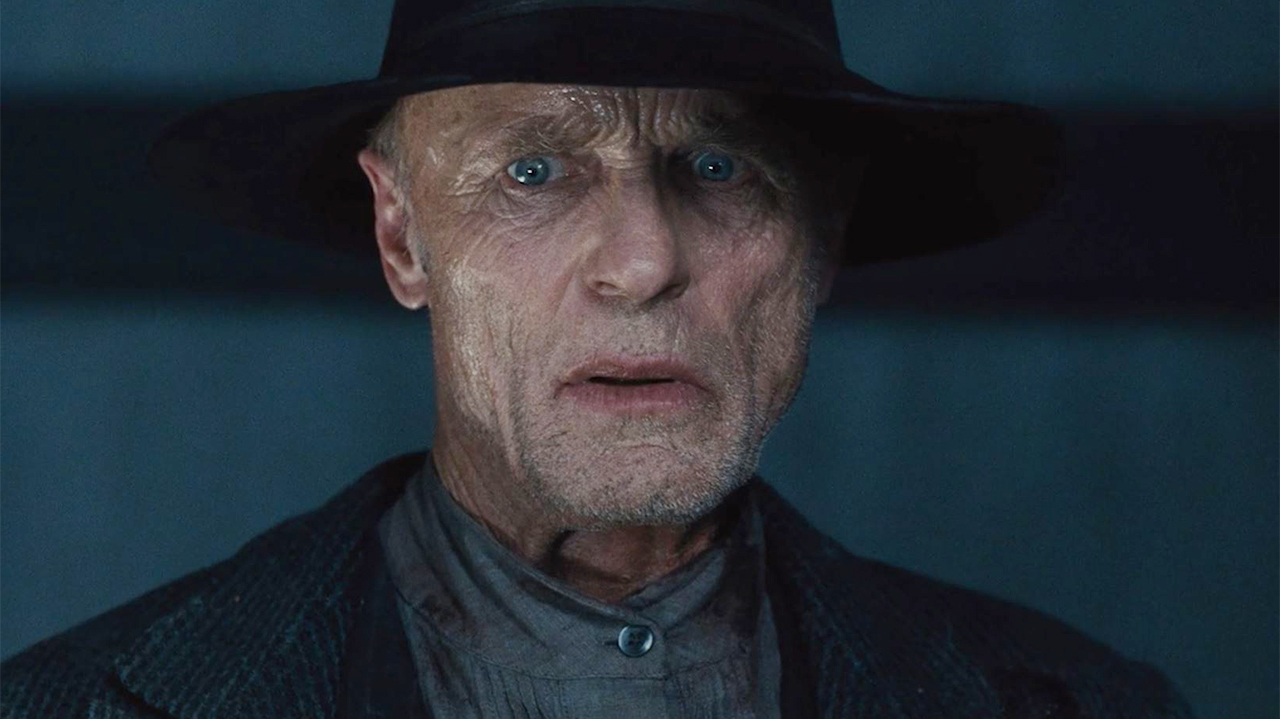
Westworld season 2 post-credits scene explained: What happens and what it means
Maeve (Thandie Newton) could have suffered from the same problems given that her entire season 2 storyline merely focuses on finding her daughter, but she was lucky, she got to visit other parks. There’s little to say about Shogun World that you don’t already know, but suffice to say, the episodes spent in this other park prove that season 1 wasn’t a one off and that Joy and Nolan are experts in world-building. What’s even more impressive is that a lot of the themes and storylines explored in these episodes mirror ones we’ve already seen in Westworld before and yet, they’re still captivating, helped in no small part thanks to the authenticity the behind-the-scenes team brought to Shogun World, and new cast members Hiroyuki Sanada, Rinko Kikuchi, and Kiki Sukezane who turned in some incredible performances as the Japanese Hosts. As for the rest of Maeve’s storyline, it was a stroke of genius teaming her with the arrogant, but ultimately cowardly former Head of Narrative Sizemore (Simon Quarterman), who acted as the perfect balance to her cold-blooded viciousness, and ultimately formed a bond with the Host, which made us care about the character for the first time. The rest of their party - Hector (Rodrigo Santoro), Armistice (Ingrid Bolsø Berdal), Felix (Leonardo Nam), and Sylvester (Ptolemy Slocum) - were fairly inconsequential, but the thing about Westworld is that, even the secondary characters are so well written and so well acted that they’re unmissable even if they don’t drastically impact the main storyline much.
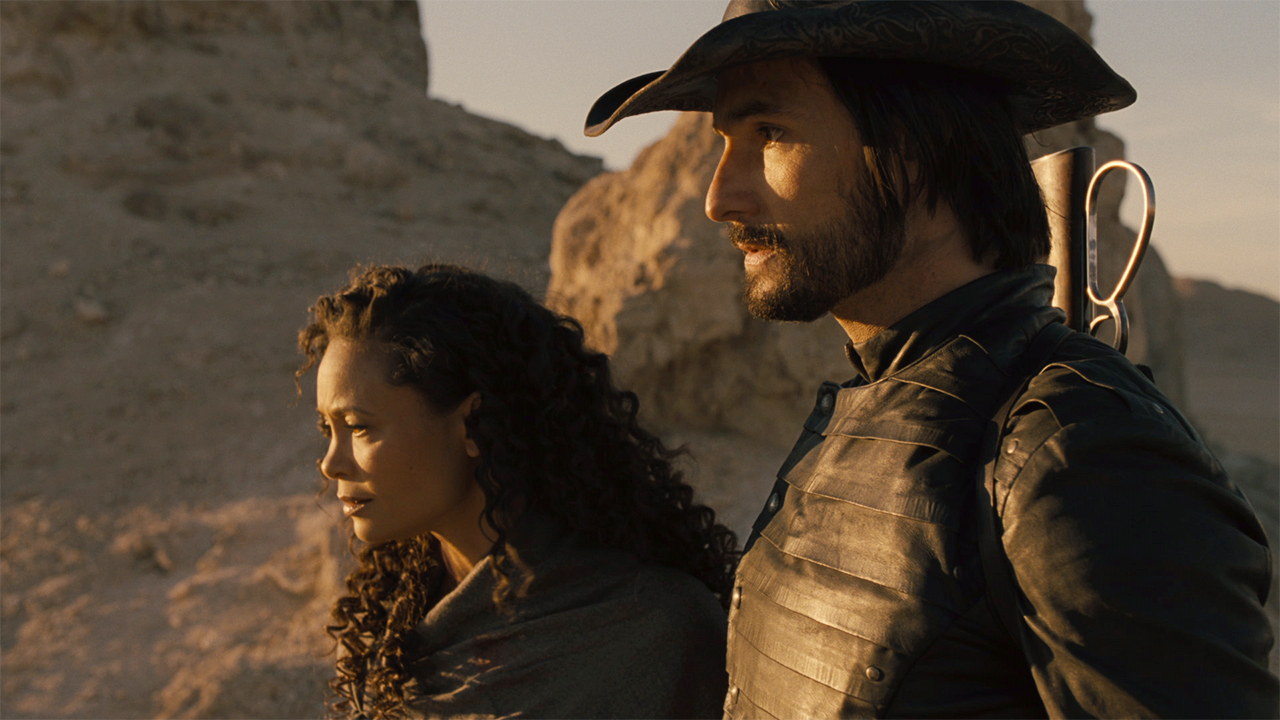
One character who didn’t fare so well is Bernard (Jeffrey Wright) who spent the majority of season 2 perpetually confused. While Bernard’s memory loss is intriguing at first, and it acted as an effective window for the audience who were also clueless, it eventually became tiresome and I felt like the character lost a lot of what made him interesting (along with his memory) from season 1. The decision to bring Ford (Anthony Hopkins) back is really what saved Bernard’s story arc from mediocrity in season 2 and, despite the obvious issues with ‘resurrecting’ an iconic but dead character from the first season, his return is impressively well executed. Using the character sparingly, but in all the right places is what made Ford’s return work and his reappearance added some much needed season 1 star power to proceedings without dominating the new season and feeling like a cop-out.
Just like Dolores, the Man in Black undergoes a welcome transformation in season 2 too. Having finally got what he wants - real stakes and a real game - he starts to lose his cruel and despicable edge and become more human in this season. While the showrunners thankfully stopped short of turning him fully ‘white hat’, we do start to see a more relatable side to the Man in Black, which is necessary after the shocking season 1 revelation that he and William are the same person. This season needed to follow through on that revelation and connect the dots between the two very different characters and it did so expertly using some well-placed flashbacks and the introduction of his daughter Emily (Katja Herbers). Much like Ford supported Bernard’s season 2 character, Emily did the same for the Man in Black, while still managing to be a genuinely interesting character in her own right. Their relationship saved the Man in Black’s story arc (he spent season 2 looking for a door rather than a maze, but it’s basically the same game) from becoming stale, and the conclusion in which he starts to completely unravel feels unexpected but justified.
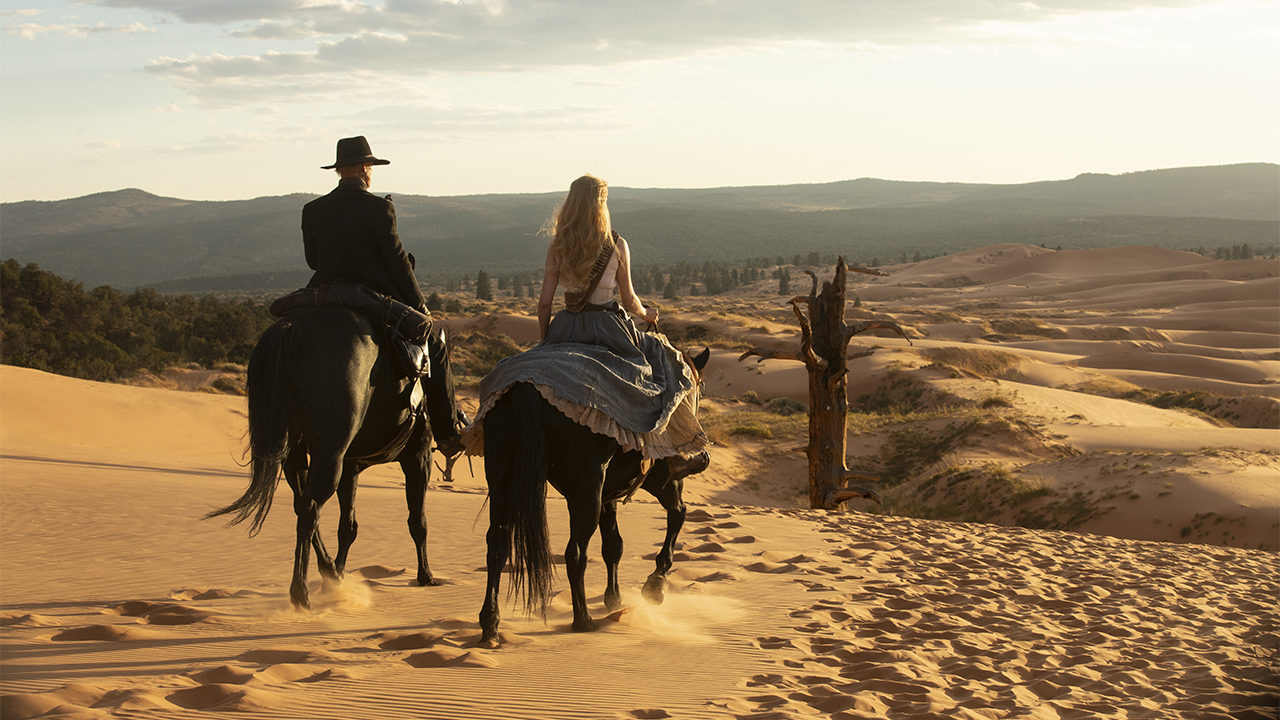
So, what about the finale? I said in my episode 9 review that despite its positives, Westworld season 2 was going to have to pull off something pretty incredible in its last episode to save the season - and boy, did it! Finally, here is the Westworld we remember from season 1 as all the stories somehow manage to come together and conclude in a thrilling and satisfying way, while still teasing something completely WTF for season 3. It’s still confusing, it’s still packed with action AND emotion, it’s still cinematically beautiful, and you still can’t tear your eyes away for a single second. In fact, episode 10 proves to me that Westworld season 2 is still Westworld - AKA, one of the best shows ever made. There’s so much yummy cinematic goodness in the 90 minute episode that it almost makes you forget the few disappointing moments of the season. It gives true purpose and excitement to Dolores’ story, it makes us weep for Maeve’s sacrifice, and it even uses the Man in Black to hint at something more (that post-credits scene was an unbelievable treat!). After the ups and downs of Westworld season 2, the final episode bought it back for me 100%.
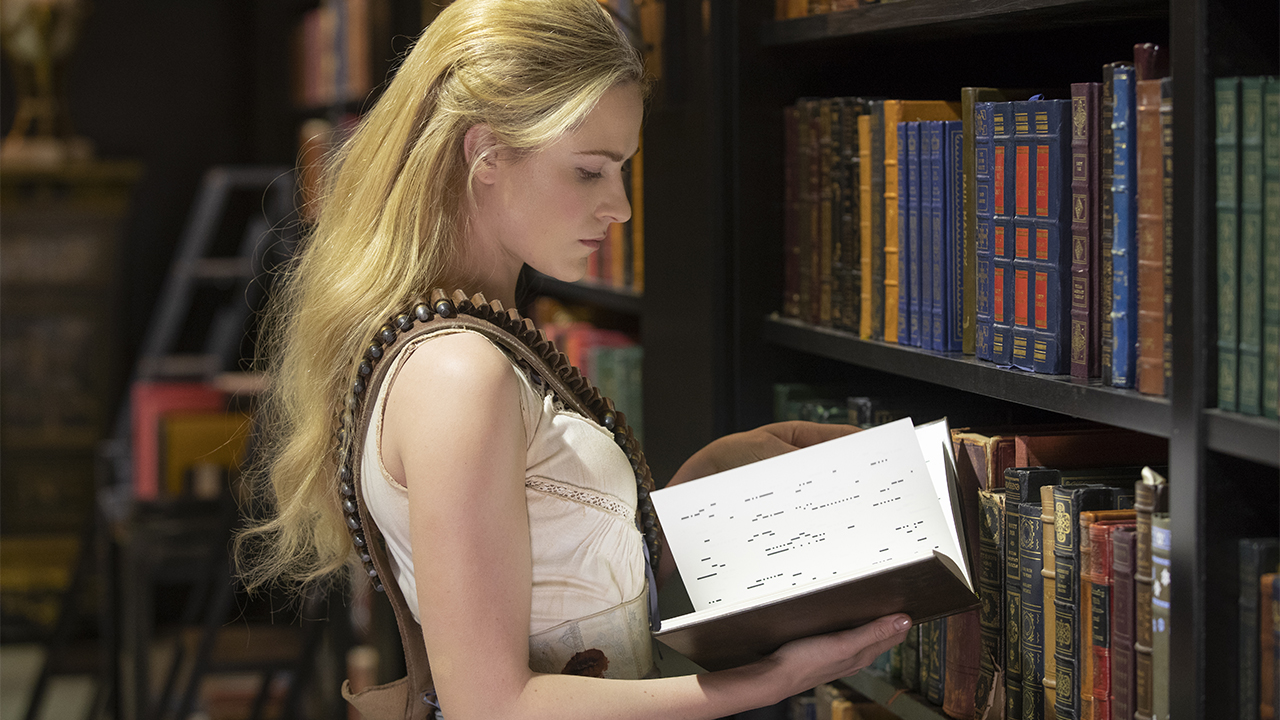
"I couldn’t spoil what happened even if I tried" – The internet reacts to the Westworld season 2 finale
Add to this everything we already know about Westworld: that its cast are some of the best actors in the world working right now (a particular shout out to Zahn McClarnon this season!); that it’s high quality production value really stands it apart from other other shows and even a lot of movies; and that the attention to detail the writers and directors refuse to sacrifice adds more to its story than any of the shocking twists or revelations - and Westworld season 2 really is one of the best things you’ll see on TV this year. It’s true, it’s not as good as its first season, but when your first season is such a popular and critically acclaimed 5 star season, even half a step down from that is still impressive. While there were times this season where it felt like it could go either way, as a whole Westworld season 2 knows what it’s doing and has cemented the series position at the top of the pile of TV shows you should watch before you die. I hope season 3 can regain some of what’s been lost from season 1, but either way, I’m there. I’m so, so there. Because Westworld isn’t like other shows, and I still want to see where the narrative leads me.
Lauren O'Callaghan is the former Entertainment Editor of GamesRadar+. You'd typically find Lauren writing features and reviews about the latest and greatest in pop culture and entertainment, and assisting the teams at Total Film and SFX to bring their excellent content onto GamesRadar+. Lauren is now the digital marketing manager at the National Trust.
